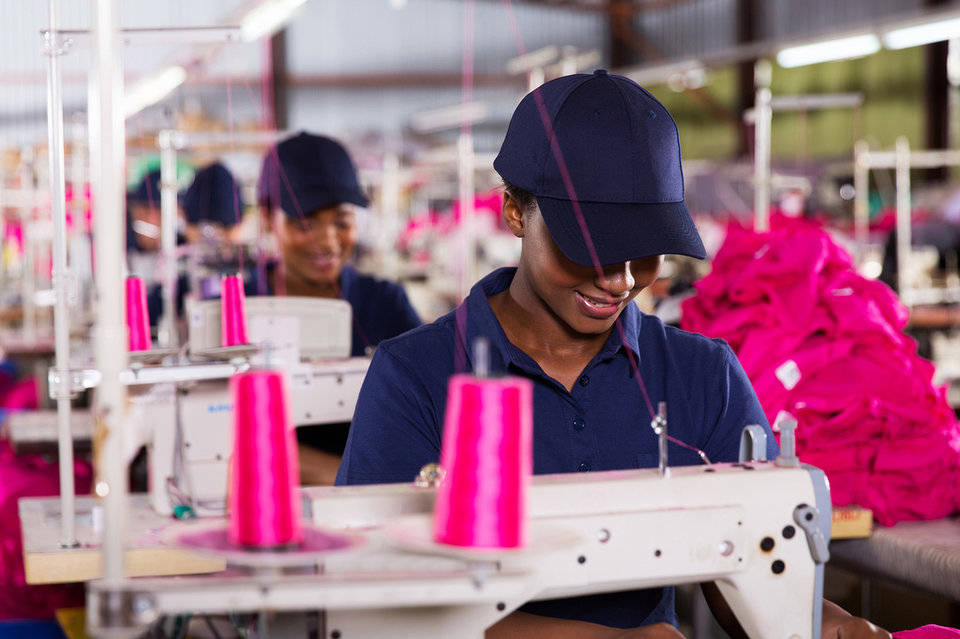More than 55% of suppliers surveyed for the last 'Better Buying Purchasing Practices Index (BBPPI)’ say they have been hit by high-pressure cost negotiation strategies. This includes not paying for samples (61.4%), not paying in time (only 64.5% of retailers and brands paid bulk order invoices on time) or not paying the full price as indicated in a purchase order (27.3%).
Other tactics include demanding level prices be maintained from year to year, with no consideration for inflation; take it or leave it – “meet the target cost or lose the order”; and comparing suppliers only on price instead of a full range of attributes.
The Better Buying initiative, which is supported by C&A Foundation and Humanity United, tracks and releases performance scores and analysis about purchasing practices, allowing trends to be uncovered and providing buyers with actionable insights to help improve their performance.
Its last report also notes that more than 20% of suppliers indicated that fewer than 80% of the orders received from retailers or brands were priced to cover the cost of social, environmental, quality, and other compliance requirements.
“All in all, the report concludes that the more pressure brands or retailers place on cost negotiations, the more likely the price does not cover all the cost.”
And for one-third (27.3%) of suppliers, customers did not pay the full price as indicated in the PO (purchase order). Moreover, nearly 10% of suppliers indicated that fewer than 20% of their customers' POs were paid in full. Suppliers say the most common reason for orders not paid in full was late or unsubstantiated claims of quality defects. Other reasons included being required to contribute to the opening of a new store, remodelling an existing store, or launching a new brand.
All in all, the report concludes that the more pressure brands or retailers place on cost negotiations, the more likely the price does not cover all the cost. This shows the need for retailers and brands to ensure their negotiation processes promote fair and sustainable partnerships.
It also implores retailers and brands to "stop focusing on reducing costs without considering the implications on suppliers."
Increased financial pressure on suppliers raises the risk of business failure, supply disruption, and environmental and human catastrophe, authors say, adding: "It is impossible to make tangible improvements to things like living wages and working conditions if retailers and brands do not ease the financial pressure placed on suppliers."
Regional differences in purchasing practices
There also appear to be significant regional differences in purchasing practices, with North American retailers forecasting the way orders are spread more consistently than those in Europe.
Two of the categories measured by the index are planning and forecasting, and sourcing and order placement, which captures data related to the supplier's ability to properly allocate human resources, develop accurate costs, and deliver goods on time. These tasks depend on the accuracy of retailers and brands to forecast the way orders are spread throughout the year.
Interestingly, the index shows a significant difference from one side of the Atlantic to the other, with North American retailers forecasting more consistently and accurately than European retailers – which enhances the ability of suppliers to plan production.
Moreover, retailers and brands from Europe/UK provided forecasts later than their North American counterparts. Nearly 37% of North American buyers provided forecasts 120 days or more in advance of order placement, compared to just 17% of Europe/UK buyers. The percentage of retailers and brands providing forecasts within just 29 days of order placement was much larger for retailers and brands in Europe/UK (11.9%) than in North America (6.6%).
A win-win sustainable partnership
The Better Buying Purchasing Practices Index measures buyer performance across seven key categories of purchasing practices: planning and forecasting, design and development, cost and cost negotiation, sourcing and order placement, payment and terms, management of the purchasing process, and win-win sustainable partnership (formerly CSR harmonisation).
A new question asking whether the buyer set minimum expectations of CSR/compliance requirements for production of its orders found, worryingly, that 9.1% of retailers and brands did not.

Action to change purchasing practices
The first two Better Buying benchmark reports show industry-wide action is needed to transform purchasing practices, and that the ratings results are a valuable tool for optimising business performance and reducing supply chain risks.
"From these actionable insights, retailers and brands can work to streamline their operations, create stronger partnerships with suppliers and monitor their efforts over time," explains Dr Marsha Dickson, Better Buying co-founder.
Several brands say they have set up internal improvement projects based on the BBPPI results. Similarly, suppliers that rate their customers help provide retailers and brands with critical information needed to drive purchasing practices improvements over time.”
“However, to gain traction more retailers and brands need to provide their supplier lists and invitation letters; and more suppliers need to rate their customers.”
However, to gain traction more retailers and brands need to provide their supplier lists and invitation letters; and more suppliers need to rate their customers.
Likewise, more buyers are encouraged to give detailed feedback about how they are using Better Buying's information to improve. And suppliers are invited to give feedback about the improvements they are seeing in their customers purchasing practices.
The last index includes ratings from 319 suppliers across 38 countries and measures the performance of 67 retailers and brands.
Companies praised for working with Better Buying to encourage their suppliers to rate are: Bestseller, Bonmarché, Eileen Fisher, G-Star RAW, JP Boden & Company, K-mart Stores (Australia), Mountain Equipment Co-Op, New Balance International, N Brown, Nike, O'Neill Europe, Outerstuff, Reformation, Rohan Designs, Schijvens Confectiefabriek Hilvarenbeek, Target Corporation, The White Company (UK), WE Europe, Whistles, and White Stuff.
BACK TO TOP